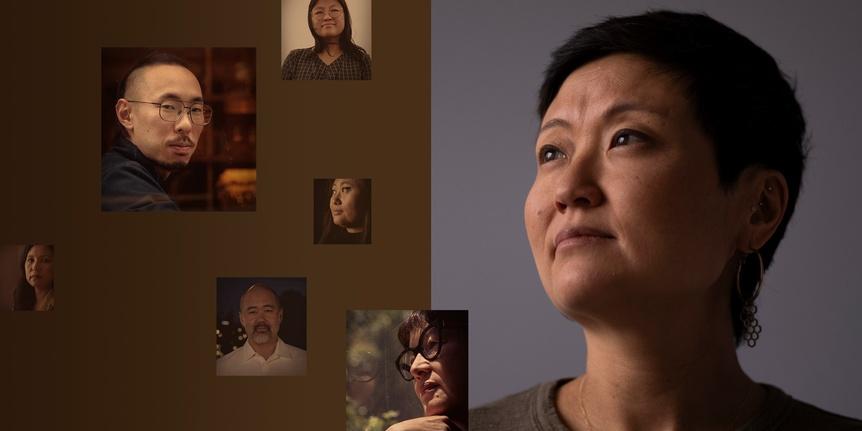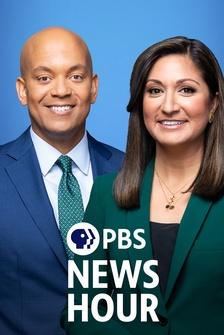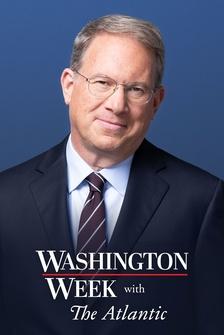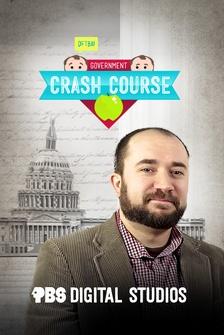Are you worried about whether your vote is going to count?
Do you think your vote matters as much as the next person, especially if you're a person of color like me?
We talked to some of you about these exact concerns.
I think it is harder for some groups in America to vote.
It could be because they don't have access, they have to work.
Not everybody is given, like, the day off to go vote.
ALEXIS: You're not alone.
Recently, there's been a lot of debate about how new laws might restrict voting, especially when it comes to younger people of color.
And on Capitol Hill, the debate is raging on both sides.
This shouldn't be a partisan issue.
We should all be against voter fraud.
We should make it as hard to commit fraud as we possibly can.
We are witnessing right now a massive and unabashed assault on voting rights unlike anything we've ever seen since the Jim Crow era.
What if I told you that the concerns we're seeing over whose vote counts today, are just the latest chapter in a tale as old as America itself?
Here's what civil rights lawyer Bryan Stevenson has to say about it.
BRYAN STEVENSON: The first lesson that Black people had to navigate in this country was that voting is dangerous.
Voting is going to be met with violent resistance, particularly in regions where there are enough Black people to actually have impacts on outcomes.
Throughout that hundred-year history between the end of Reconstruction and the Civil Rights Movement, the inability to vote is what shaped Black life.
♪ ♪ Okay, bear with me as we go back in time a bit, but it's important to know this in order to understand how we got here.
We're going to start with the Reconstruction Era, right after the Civil War.
Following the defeat of the Confederacy, the new government moved to enshrine the rights that Black Americans fought and died for in the war.
In 1868, the states adopted the 14th Amendment, granting citizenship and the promise of equal liberties to everyone, "born or naturalized" in the United States, including people who'd been enslaved.
Two years later in 1870, the 15th Amendment made clear that states couldn't prevent people from voting based on the color of their skin, although it only applied to men at the time.
Taken together, the two amendments were designed to help cement the rights of Black Americans.
And for a time, it worked.
Throughout the next decade, numerous Black leaders were voted into state and local offices.
In 1870, Hiram Revels of Mississippi became the first Black senator.
And four years later, Blanche Bruce, a Mississippian who'd been born into slavery, was also elected to serve his state.
But just as Black Americans were making these advances, white mobs throughout the South led campaigns of violence to intimidate Black voters from going to the polls.
And in the end, several of the seats held by Black candidates were lost.
In addition to the violence, several states implemented poll taxes or literacy tests, and in some cases even redrew the voting districts, in efforts to delay and deny Black Americans from voting.
The long struggle would continue for nearly a century.
Then, in 1965, things came to a head with a march from Selma to Montgomery, Alabama.
The day would later come to be known as Bloody Sunday.
One of the organizers of that day was future congressman John Lewis.
JOHN LEWIS: We are marching today to dramatize to the nation and dramatize to the world that hundreds and thousands of Negro citizens are denied the right to vote.
MAJOR JOHN CLOUD: You are ordered to disperse.
This march will not continue.
(people screaming) ALEXIS: The images from Selma sparked national outrage and led Congress to pass the 1965 Voting Rights Act.
♪ ♪ Part of that law originally targeted seven Southern states, requiring them to get federal approval for any voting law changes.
A year after it was passed, a quarter of a million Black Americans had registered to vote.
By 1968, 385 Black people had been elected to office across the South, and that number would continue to swell to nearly 4,000 by 1985.
But by then, a growing backlash would give rise to new challenges placed on Black voters.
♪ ♪ HENRY "HANK" SANDERS: When you don't want somebody to vote, you create various kinds of things.
Now, we'd come with the 1965 Voting Rights Act, they couldn't deny it outright, so you find ways to try to suppress it.
ALEXIS: That man, Henry "Hank" Sanders, was one of the people voted into office, thanks to the Voting Rights Act.
But, before serving in Congress, he represented two activists, Albert and Evelyn Turner, in a voting fraud case brought by the U.S. attorney in Alabama at the time, Jeff Sessions.
Sessions would later go on to become Alabama's senator and, during the Trump Administration, the U.S. Attorney General.
SANDERS: It was my impression that Jeff Sessions thought that those legal cases would stop Black folks from not only using absentee voting, but would stop Black folks from voting in the numbers that Black people were voting.
At every chance he got, he was talking about voter fraud, voter fraud.
ALEXIS: Sessions denied that the case was racially motivated and has continued to insist that he was only doing his job.
I just feel like we tried to conduct ourselves in in the, the right way.
I never got in the argument of race or other matters.
ALEXIS: And, as for the Turners, they were ultimately acquitted of all charges.
But the idea that widespread fraud exists in our elections didn't go away.
CLIFF ARNBECK: The people of this nation, and the people of this world, cannot accept a fraudulent election for the President of the United States.
...now on the verge of maybe perpetrating one of the greatest frauds in voter history in this country.
Voting by mail is wrought with fraud and abuse.
ALEXIS: Here's author Ari Berman, who's written extensively about voting rights.
ARI BERMAN: So this is a very old argument, uh, voter fraud.
I mean, there are cases of voter fraud here and there, but it doesn't happen in the numbers necessary to show that there's some sort of great conspiracy out there to steal elections through voter fraud.
ALEXIS: Voter turnout on the 2020 election was the highest it had been in over a century.
And in its wake, some states pushed for more restrictive voting laws.
But some experts worry those laws could make it harder for people of color to vote.
They point to new restrictions on the number of drop box locations, shortened deadlines to request mail-in ballots, and stricter requirements with voter IDs.
But despite all of this, many of you told us you're still hopeful.
And overall, voter turnout has remained high.
♪ ♪ I'm honestly hopeful for the future.
I think with the rise of social media, we're seeing that a candidate can no longer get into a small scandal and wipe it under the rug.
Personally, I believe that my vote will matter.
We're going to know what to look for and it's basically how we want our next four years to be.
We all do have our different ideas, obviously, and opinions, everybody has their different opinions.
But I have hope.
Still have questions about voting rights?
We're covering this story at pbs.org/frontline.
And watch "Whose Vote Counts," our investigation into allegations of voting disenfranchisement and how false claims of extensive voter fraud entered the political mainstream.
Just click here to watch.
(beeping) MAN: Recenter, so... (laughs) No, no.
ALEXIS: Like, in my belly?
(offscreen laughter) ♪ ♪







